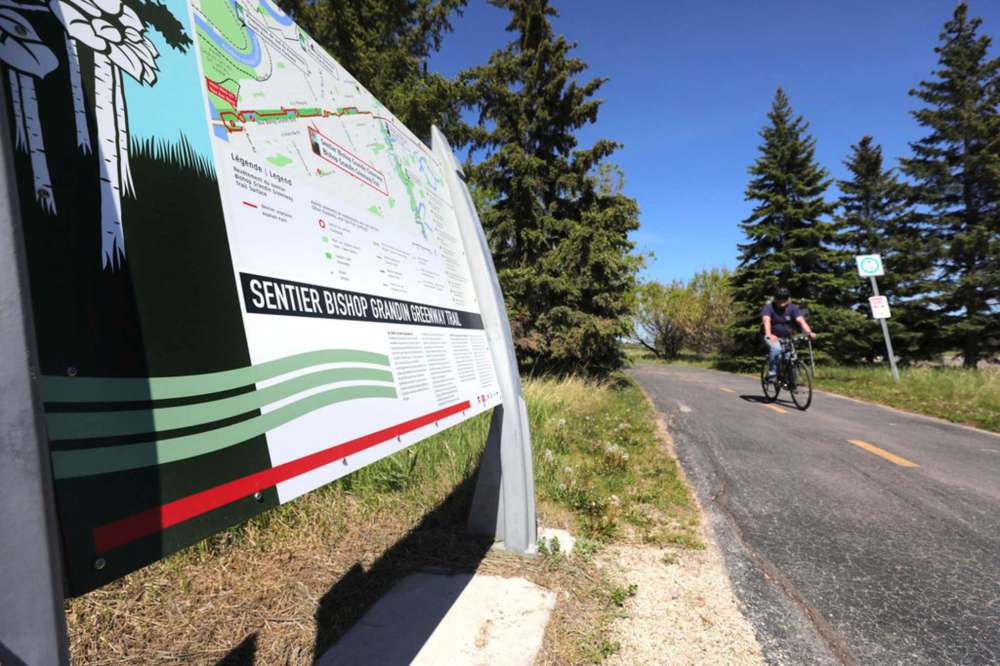Residential school tragedy renews calls for name change
Advertisement
Read this article for free:
or
Already have an account? Log in here »
To continue reading, please subscribe:
Monthly Digital Subscription
$0 for the first 4 weeks*
- Enjoy unlimited reading on winnipegfreepress.com
- Read the E-Edition, our digital replica newspaper
- Access News Break, our award-winning app
- Play interactive puzzles
*No charge for 4 weeks then price increases to the regular rate of $19.00 plus GST every four weeks. Offer available to new and qualified returning subscribers only. Cancel any time.
Monthly Digital Subscription
$4.75/week*
- Enjoy unlimited reading on winnipegfreepress.com
- Read the E-Edition, our digital replica newspaper
- Access News Break, our award-winning app
- Play interactive puzzles
*Billed as $19 plus GST every four weeks. Cancel any time.
To continue reading, please subscribe:
Add Free Press access to your Brandon Sun subscription for only an additional
$1 for the first 4 weeks*
*Your next subscription payment will increase by $1.00 and you will be charged $16.99 plus GST for four weeks. After four weeks, your payment will increase to $23.99 plus GST every four weeks.
Read unlimited articles for free today:
or
Already have an account? Log in here »
Hey there, time traveller!
This article was published 01/06/2021 (1652 days ago), so information in it may no longer be current.
DEMAND is growing to remove the Bishop Grandin name from a Winnipeg greenway and boulevard, as outrage spreads across Canada over the tragic toll of residential schools.
The City of Winnipeg said it received its first calls to rename the local destinations in 2018, due to Bishop Vital-Justin Grandin’s (1829-1902) support for the residential school system.
News broke last week the remains of 215 children had been found at the former Kamloops Indian Residential School in B.C. In the days since, the Assembly of Manitoba Chiefs says local pressure is growing to replace the Bishop Grandin name.

“To rename Bishop Grandin (boulevard and greenway) would be not only respectful but it would actually provide some healing to all those people who have lost children and family members at residential school,” AMC Grand Chief Arlen Dumas said Monday.
The Truth and Reconciliation Commission of Canada found the manner in which Indigenous children were taken from their families amounted to a “cultural genocide,” he said.
“(The schools) were programmed and designed to eradicate aspects of First Nations culture, if not First Nations themselves. You have to take a step back as an individual and (ask)… Should we be elevating and highlighting people with that type of legacy?” Dumas said.
Jerry Daniels, Grand Chief of the Southern Chiefs’ Organization, would also like to see the name Bishop Grandin replaced, ideally to honour someone who has exposed what took place at residential schools.
“We should be remembering those children. We should be remembering the advocates, like Phil Fontaine, who stepped forward and was one of the first very well-known First Nations leaders who spoke of his experience in residential schools, which led to the TRC,” said Daniels.
Others argue the Grandin name should stay in place, alongside a marker that explains his connection to the schools.
“I think Bishop Grandin should not be allowed to disappear… He was part of something that was horrific, that was inhuman,” said David Chartrand, president of the Manitoba Metis Federation.
“I just hate the thought that the people that did so much harm and so much damage will fade away because their names will not be seen anymore and that history will not be there.”
Chartrand said keeping that “stain” on history visible should also highlight the Canadian government’s role in the residential school system.
“We know the residential schools have been one of the most horrific lessons learned and suffering that has taken place in this country,” he said.
Winnipeg city councillors expect a report within the next few months that could address Bishop Grandin Greenway.
Coun. Brian Mayes (St. Vital) raised a successful motion to have a committee of community members study options for a plaque or historical marker to be installed that explains the history of the name. Many Winnipeggers supported such an educational move during public consultations.
The committee, part of the Welcoming Winnipeg: Reconciling our History policy, will make a recommendation to council on how to proceed with that request.
However, Mayes said he is also open to replacing the name, depending on the report’s conclusions and public feedback.
“If (the marker is) rejected, I would be open to a debate about renaming the street… We should do something, we shouldn’t just wash our hands of this,” he said.
On Twitter, Mayor Brian Bowman said it’s time for Winnipeg revisit the name of Bishop Grandin Boulevard.
“I will be working with my council colleagues in the coming weeks to explore how the city can further benefit from the expertise of the Welcoming Winnipeg committee on the issue of the street name… It’s my hope that this work can occur in an expeditious manner so that council can consider next steps to support our community’s reconciliation efforts,” Bowman tweeted.
Welcoming Winnipeg is currently tasked with handling naming requests for plaques, statues, murals, parks, buildings, trails and bridges.
Street names are handled through a separate city policy.
— with files from Dylan Robertson
joyanne.pursaga@freepress.mb.ca
Twitter: @joyanne_pursaga

Born and raised in Winnipeg, Joyanne loves to tell the stories of this city, especially when politics is involved. Joyanne became the city hall reporter for the Winnipeg Free Press in early 2020.
Our newsroom depends on a growing audience of readers to power our journalism. If you are not a paid reader, please consider becoming a subscriber.
Our newsroom depends on its audience of readers to power our journalism. Thank you for your support.







